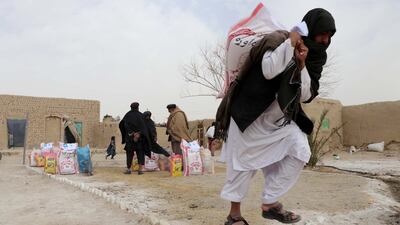About one million people in Afghanistan, Ethiopia, South Sudan, Somalia and Yemen are starving or will face starvation this year in the absence of aid as the global food crisis worsens, UN agencies said on Wednesday.
Local conflict and extreme weather remain the primary drivers of hunger, aggravated this year by economic instability linked to the ripple effects of the Covid-19 pandemic and the Russia-Ukraine war.
“The severe drought in the Horn of Africa has pushed people to the brink of starvation,” said the head of the UN Food and Agriculture Organisation (FAO).
“Acute food insecurity is rising fast and spreading across the world. Without a massively scaled-up humanitarian response, the situation will likely worsen in the coming months.”
Although global agricultural commodity prices have come off record highs in recent months, local food prices in several countries remain high and the risk increases if a UN-brokered deal to boost shipments of Russia and Ukrainian grain and fertiliser were to collapse.
Ukraine is the world's fourth-largest grain exporter, while Russia ranks third for grain and first for fertiliser exports.
The FAO's quarterly “hunger hotspots” report, co-authored by the UN World Food Programme, said that high prices for food, fuel and fertiliser have forced advanced economies to tighten monetary policy.
This has increased the cost of credit for low-income countries, constraining their imports and forcing them to introduce austerity measures.
“These trends are expected to increase in coming months, with poverty and acute food insecurity rising further, as well as risks of civil unrest driven by increasing socio-economic grievances,” said the report.

